Ta-Wei Ho
SPANet: Generalized Permutationless Set Assignment for Particle Physics using Symmetry Preserving Attention
Jun 07, 2021
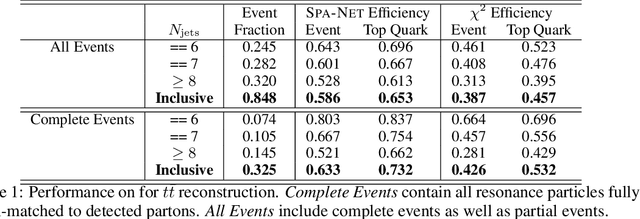

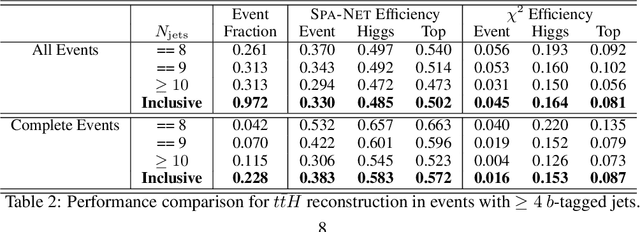
Abstract:The creation of unstable heavy particles at the Large Hadron Collider is the most direct way to address some of the deepest open questions in physics. Collisions typically produce variable-size sets of observed particles which have inherent ambiguities complicating the assignment of observed particles to the decay products of the heavy particles. Current strategies for tackling these challenges in the physics community ignore the physical symmetries of the decay products and consider all possible assignment permutations and do not scale to complex configurations. Attention based deep learning methods for sequence modelling have achieved state-of-the-art performance in natural language processing, but they lack built-in mechanisms to deal with the unique symmetries found in physical set-assignment problems. We introduce a novel method for constructing symmetry-preserving attention networks which reflect the problem's natural invariances to efficiently find assignments without evaluating all permutations. This general approach is applicable to arbitrarily complex configurations and significantly outperforms current methods, improving reconstruction efficiency between 19\% - 35\% on typical benchmark problems while decreasing inference time by two to five orders of magnitude on the most complex events, making many important and previously intractable cases tractable. A full code repository containing a general library, the specific configuration used, and a complete dataset release, are avaiable at https://github.com/Alexanders101/SPANet
Permutationless Many-Jet Event Reconstruction with Symmetry Preserving Attention Networks
Nov 03, 2020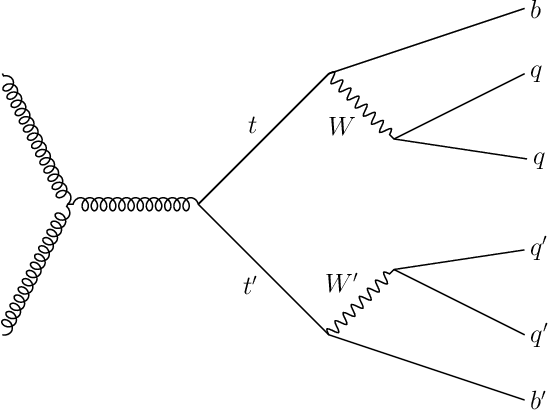
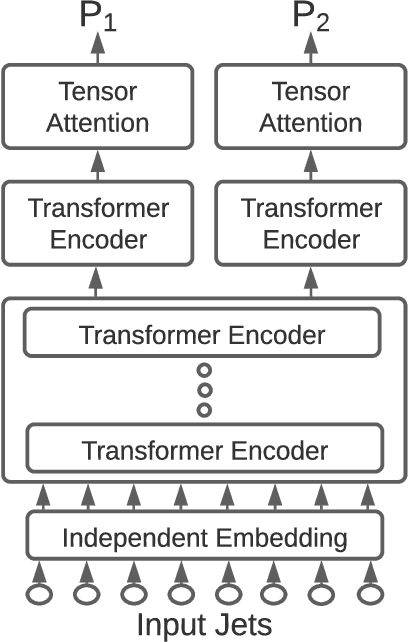
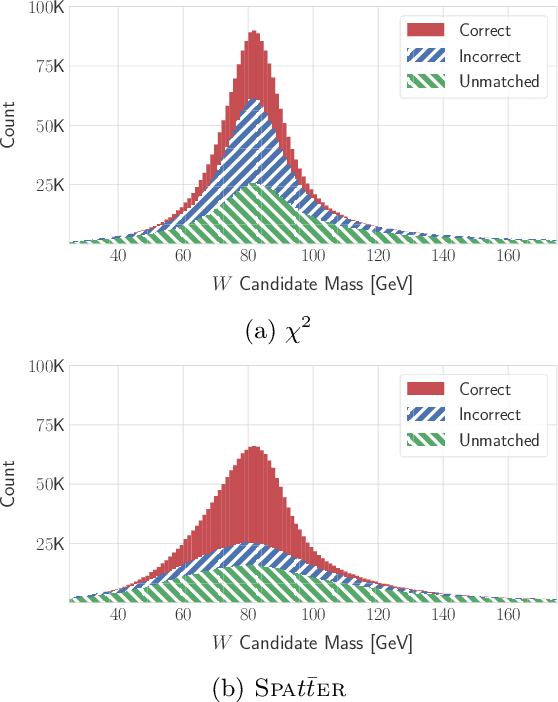
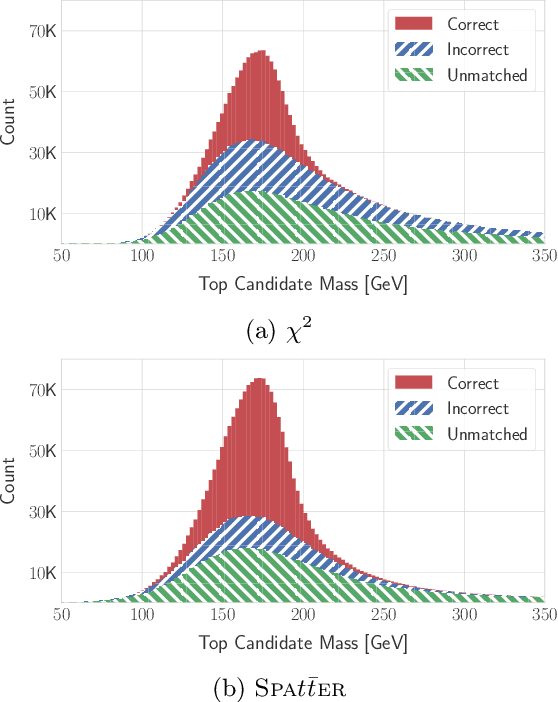
Abstract:Top quarks, produced in large numbers at the Large Hadron Collider, have a complex detector signature and require special reconstruction techniques. The most common decay mode, the "all-jet" channel, results in a 6-jet final state which is particularly difficult to reconstruct in $pp$ collisions due to the large number of permutations possible. We present a novel approach to this class of problem, based on neural networks using a generalized attention mechanism, that we call Symmetry Preserving Attention Networks (SPA-Net). We train one such network to identify the decay products of each top quark unambiguously and without combinatorial explosion as an example of the power of this technique.This approach significantly outperforms existing state-of-the-art methods, correctly assigning all jets in $93.0%$ of $6$-jet, $87.8%$ of $7$-jet, and $82.6%$ of $\geq 8$-jet events respectively.
 Add to Chrome
Add to Chrome Add to Firefox
Add to Firefox Add to Edge
Add to Edge